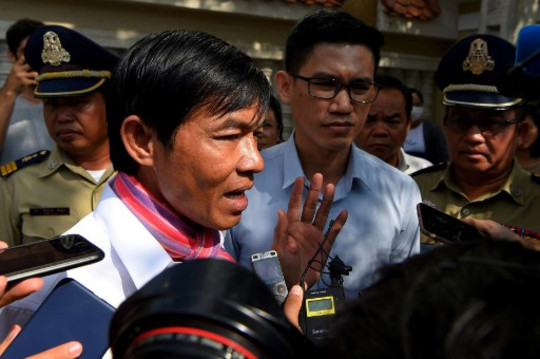IFJ has been monitoring press freedom and attacks on media institutions in the country for 17 years. It began when IFJ published a statement on October 20, 2003 to condemn the killing of a reporter in Phnom Penh and warn against the creation of a “climate of fear”. On 18 October 2003, senior radio political editor Chou Chetharith, was shot and killed. His shooting came only days after prime minister Hun Sen accused the broadcaster of insulting his party.
Fast forward 17 years and the IFJ and its affiliate, the Cambodian Association for the Protection of Journalists (CAPJ), continue to track threats against the media workers and media institutions. In a 2019 IFJ survey found that 50 per cent of journalists felt that the media situation was seriously declining, blaming state actors and government policy for growing repression and ongoing impunity.
“Journalists and the media in Cambodia continue to face significant judicial harassment and intimidation this has taken the form of arbitrary arrests of journalists and the widespread shutdown of independent media outlets using a range of legislative tools, such as tax regulations or the Lese Majeste criminal offence,” Chak Sopheap, from the Cambodian Center for Human Rights, said in an interview with IFJ.
Authorities are now using the Covid-19 pandemic to further repress rights to freedom of expression, association and assembly through the state emergency law. The law grants the government sweeping new powers to monitor communications, control media and prohibit or limit the distribution of information deemed to trigger public fear and damage national security.
Regarding the recent developments CAPJ said: “The new emergency law, introduced to tackle the spread of coronavirus in Cambodia, is also likely to harm press freedom and silence government critics. In this health crisis, authorities should focus on ensuring the public’s right to know.”
The IFJ’s Strengthening Professional Journalism media monitoring project, launched on World Press Freedom Day 2020, is an effort to raise the awareness of ongoing violations and, importantly, to shine a light on the brave work of journalists in the country.
IFJ said: “This media monitoring project is one way to continue to draw attention to assaults on media freedom in Cambodia. The IFJ and its partners will keep on advocating for press freedom and for the safety of journalists, because journalists must not be silenced.”


